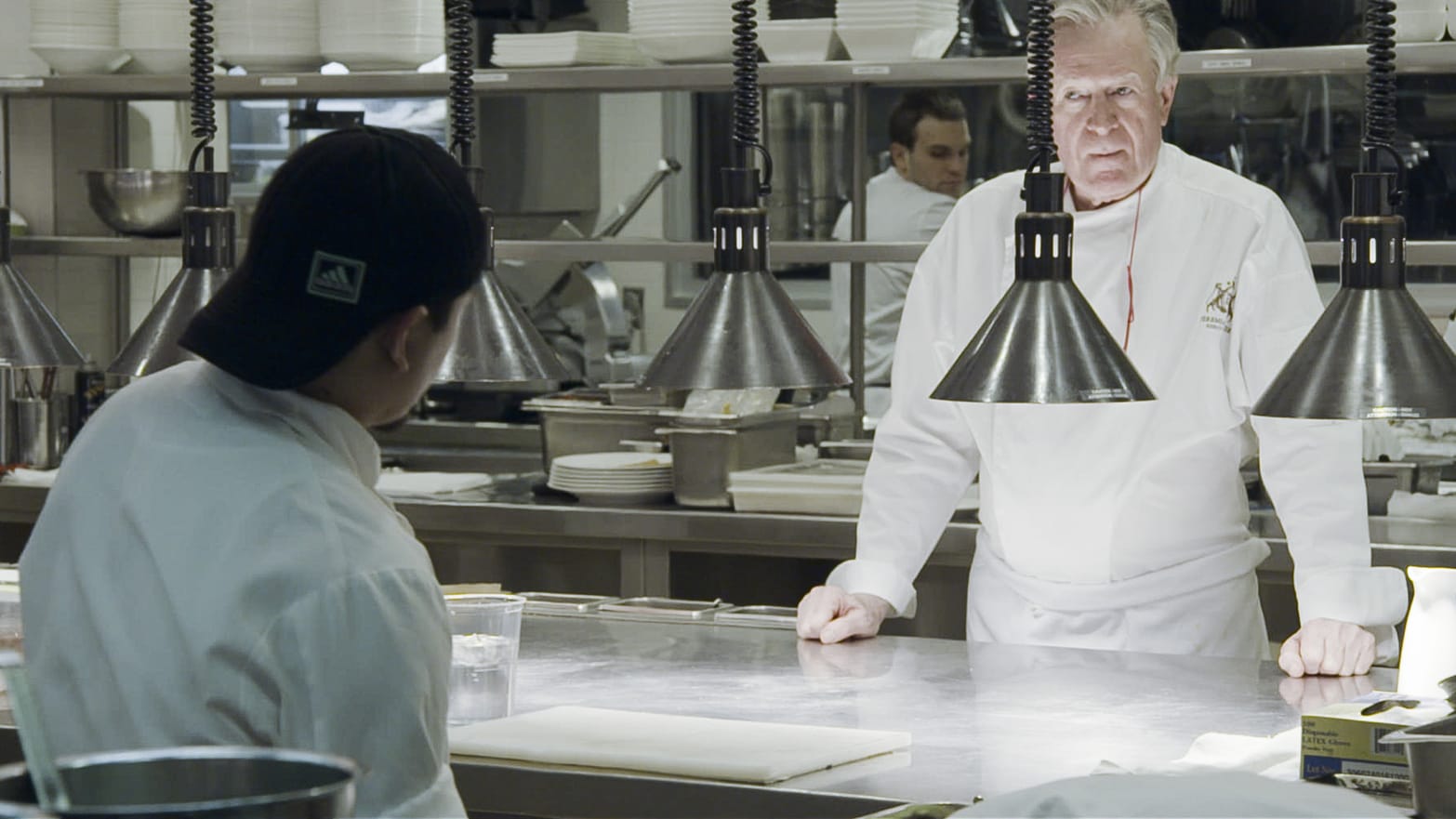The film Jeremiah Tower: The Last Magnificent traces your life, from your globe-trotting but rather lonely childhood, through your master’s degree at Harvard. What made you turn to cooking? “Anthony Bourdain loves to make the point that it was a lonely childhood, but I wasn’t lonely, because I had all these hotel waiters and ship stewards and grand chefs inviting me into the kitchen. So I was highly entertained, but I do accept the contention that if there was a void in my life that I filled it with food.”
Your first restaurant job was working for Alice Waters at Chez Panisse in 1972, and the two of you are often called the progenitors of so-called California cuisine. At the time, did you think you were creating a whole new style of cooking? “No. I mean, it seems a little weird to say it now, but I had no sense of creating waves at the time. I just didn’t know any other way to cook besides using the freshest ingredients. I was just cooking the only way I know and insisted on the freshest possible ingredients, which in those days just happened to be local. We didn’t want to buy frozen Dover sole, and we couldn’t afford to anyway!”
You rose swiftly to national fame and opened your own restaurant, Stars, in San Francisco in 1984. But after 14 successful years there, you walked away from professional cooking for more than a decade. What happened? “Well, I sold the Stars group in 1998, and then the owners continued to run it for another few years and ran out of steam. [Stars closed in late 1999.] At that time, I was in New York writing books and doing TV shows for PBS. Later, I got to Mexico and I was on the beach and I could not see going back to a kitchen from being in the sunny Caribbean.”
After you left Stars, you traveled extensively, living in the Philippines, Mexico, Italy, New Orleans, New York and more. Did that experience change your outlook on food and cooking? “I’m completely open to everything. I grew up eating in these grand restaurants in France, and eating grilled shrimp on the beach in Mexico is equally wonderful. Travel has opened my mind to that. You don’t have to be in a 3-Michelin-star restaurant to have a great meal.”
What made you decide to take the executive chef job at Tavern on the Green in New York in 2014? “You can’t sit on the beach forever. After 25 years of cooking and saying hello to 350 people a day, it took me a while to balance out all that on the beach. So when that opportunity came up, I thought, ‘that’s a challenge’ and I thought, ‘well, why not? Let’s see if I can still do it.’ And we almost did it there.”
Anthony Bourdain is an executive producer of and a talking head in Jeremiah Tower: The Last Magnificent, and it was directed by Lydia Tenaglia, who’s been producing his TV shows since 2003. How did you first get connected? “Tony had read my first book, California Dish [which was recently revised and reissued as Start the Fire], about the food revolution in the U.S., and took it to Lydia, and he said, ‘There’s a story here. I think we should film it.’ So she read it and contacted me for a 45-minute interview that turned into 4 hours. And she filmed it and sent it to CNN, and that’s how everything started.”
Where does that subtitle, The Last Magnificent, come from? “That’s from an article a long time ago in Gourmet magazine by James Villas. He wrote an article [subtitled ‘The Last Magnifico’ and published in 1998] about Lucius Beebe, this New York writer from the ‘30s and ‘40s who was the last sort of ‘grand boulevardier,’ the last guy who had a private railroad car. And I quoted that and said I wanted to be like him, and the director picked up on that and thought it would be a great title for the film. I mean, one doesn’t call oneself magnificent and not also say one’s the last one!”
You were one of the first people to be called a “celebrity chef,” but today the title is nearly ubiquitous. How do you feel about the concept of chefs as celebrities? “If you believe Anthony Bourdain, I was the first celebrity chef, but that’s just because I’m the oldest! Like the food revolution, that’s all worked very well, and now you have big food celebrities, much bigger than I am. But the problem is that now chefs think that in order to be a success, they work a few years and then get a show on TV. You have to spend some time learning how to do it, and it’s more than a year or two. They get distracted by the thought of becoming famous.”
You had no formal culinary education when you applied for your first chef job. Is that still a viable career path today? “Yes. I think it depends on your attitude. I had a great attitude because I was broke; I needed to eat, so that certainly is an incentive to work. When I was hiring people, I didn’t really care if they knew anything; I hired people who had the right attitude. Anyone who wants to start, do the research, choose the restaurant or chef you want to work with and just go say, ‘I’m your next best thing.’ Then prove it. Every chef in America needs someone who’s willing to work and learn.”
What’s the best way for someone who’s not a great cook to get better at it? “Figure out the food that you admire most, the five or ten dishes, and really work on those. Then, don’t bother to cook anything else. Take some cookbooks that you love to read and you trust and cook from there. And when I say ‘trust,’ I mean that the recipes really work. Work your way through it. And at the end of the book, you end up with five, six, ten recipes you can use forever. Also, learn how to make French-style scrambled eggs! You can serve those to anybody in the United States, at any time of day, and they’ll go crazy for them.”
How do you feel about the restaurant scene today? “Everybody’s trying to get a Michelin star, and that’s a huge mistake. You can look at that plate of food in Sydney, Tokyo, London, New York, and it all looks the same. A dot, dot, dot of sauces on the plate and maybe a smear or two. I mean, c’mon, guys: Let the ingredients be the star on the plate and not the chef! Food has to get back to the ingredients, and chefs need to understand that the greatest talent is having the knowledge to buy and store and prepare the most perfect ingredients. Why screw up a lobster, you know?”
So what restaurants are doing it right right now? “Joe Beef in Montreal. I had some amazing food and a wonderful time there. Le Bernardin in New York. I’ve had an amazing meal at Saison in San Francisco; I don’t much like tasting menus, but that was a great one. In Paris, some of the old bistros, like Chez Georges.”
What’s the single best thing you’ve ever eaten? “Aside from a kilo can of beluga caviar in the old days when it really was beluga, I think that would be very difficult to say! I’ve had this grouper in Hong Kong called soh mei; that’s a fish that tastes like foie gras, it’s so amazing. The best thing I ever tasted, though, may be a pike mousse stuffed with deboned frog legs at the Auberge de L’Ill in Alsace in France.”
What’s next for you? “I’m going to New Orleans in two days to launch a new book, Flavors of Taste. And I’m writing a proposal for the book after that, on desserts. And a few other projects—a series of cooking classes called Magnificent Food. With a little scuba diving in between.”
Jeremiah Tower: The Last Magnificent is now available via CNN on demand or the CNNgo app.
Interview has been condensed and edited.

